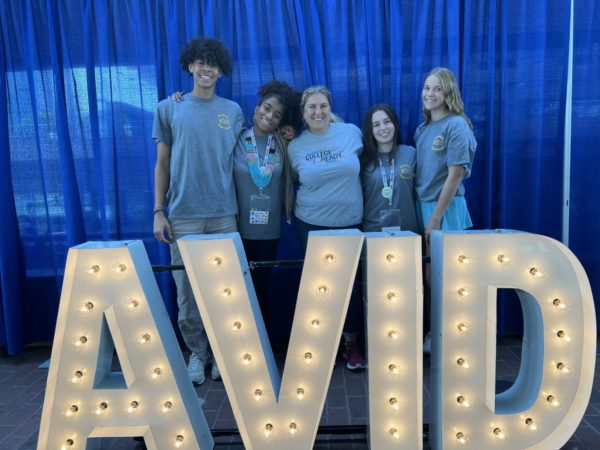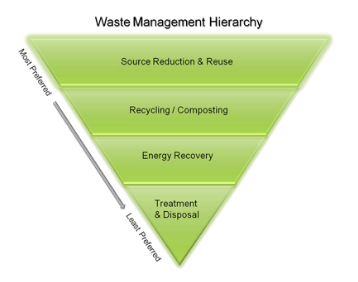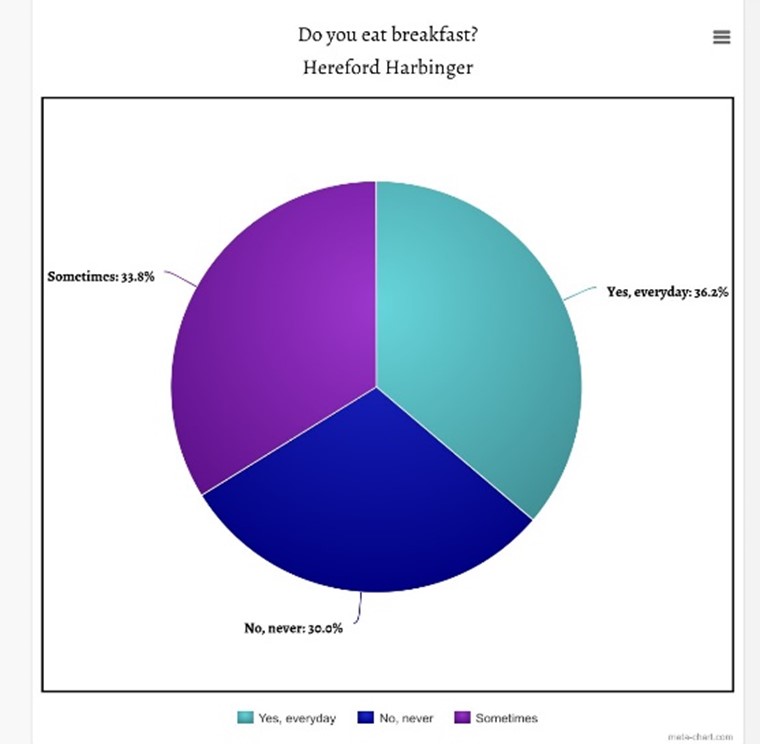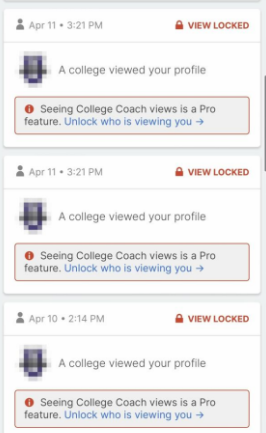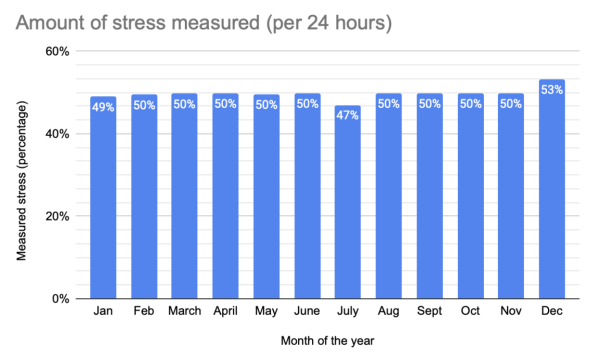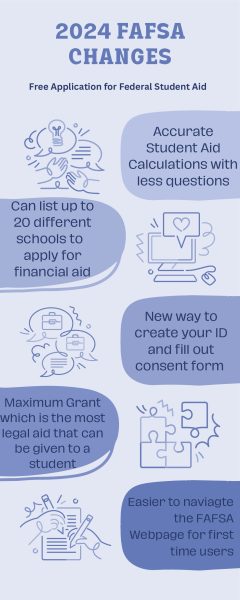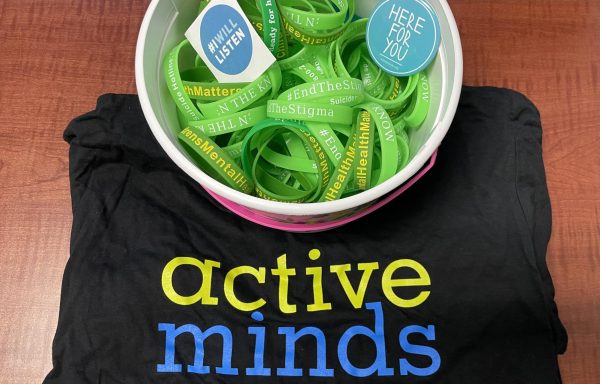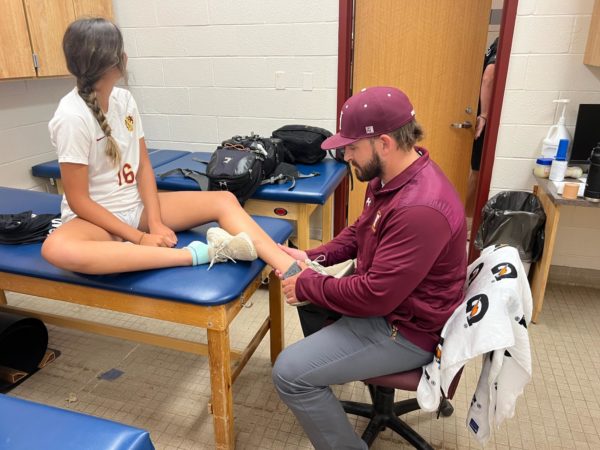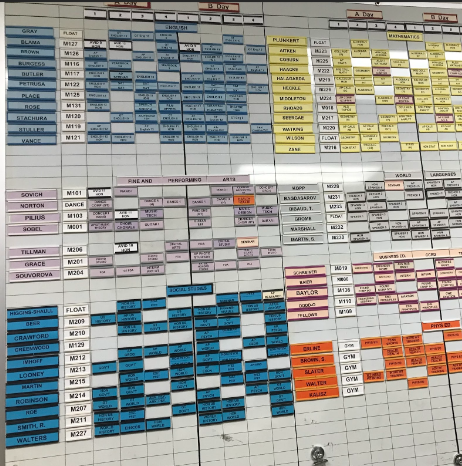Breakfast dilemma influences students’ energy levels
Light grey represents students who eat breakfast every day. Black represents students who rarely do. Dark Grey represents students who sometimes do.
February 18, 2022
High school students struggle with achieving the appropriate amounts of nutrients when eating breakfast. Some students choose not to eat breakfast or attempt to replace the meal with coffee daily to increase the amount of energy they have.
Replacing this meal has become a serious issue for individuals’ overall health. At Hereford, 36.2 percent of students eat breakfast, 33.8 percent sometimes do, and 30 percent of students rarely consume food in the morning.
Tayna Andreeva (‘24) eats a bowl of cereal every morning.
“I’d go to school with an empty stomach, I wouldn’t be as focused or as energetic, I’d just be really slugging, up until lunch,” Andreeva said.
If Andreeva doesn’t have time to eat at home, she will eat on the bus to ensure she gets something in her body for the start of her day.
Having at least a snack in the morning is better than nothing. It isn’t necessary to eat a large breakfast in order to get your nutrients.
Something as simple as a granola bar or protein bar, can give you at least some protein and grains to start your day off. Many students eat a granola bar every morning and feel they have enough energy to last them a few hours.
“Eating a granola bar keeps me filled up and helps me to not fall asleep in class,” Bailey Berquist, (’23) said.
Berquist is an athlete and notices that even with a late lunch, she can still be sustained by a granola bar. She drinks coffee daily to boost her energy and feels having it with her breakfast helps her to stay awake and energized.
Scientists say that a granola bar is a good source of fiber, proteins, and grains, though some contain a large amount of sugar. Sugar and caffeine both give a boost of energy, which helps many individuals in the mornings.
“I find that when I have coffee, I’m more awake and alert,” Emily Kruger (‘22) said.
Drinking coffee is a part of Kruger’s daily morning routine, along with a nutritious breakfast consisting of either yogurt or oatmeal.
Caffeine triggers the release of adrenaline and the “fight-or-flight” aspect associated with increased energy.
“I didn’t drink coffee this morning, and I feel extra tired,” Kate Evitts (’25) said.
Scientists have confirmed that the sudden but short-lasting effects of caffeine is a shock to the body.
For many students, breakfast is not a necessary part of their morning routine.
Joey Rhoads (‘22) is an athlete who does not eat breakfast daily but is able to sustain himself through school and sports.
“I’m just not hungry in the morning, but I still eat during the day,” Rhoads said.
High School students need all possible nutrients in order to increase brain capacity and reduce health risks such as high blood pressure, diabetes, and heart diseases. It is important to keep your mind and body energized and eating breakfast is one simple way to have control of that.





